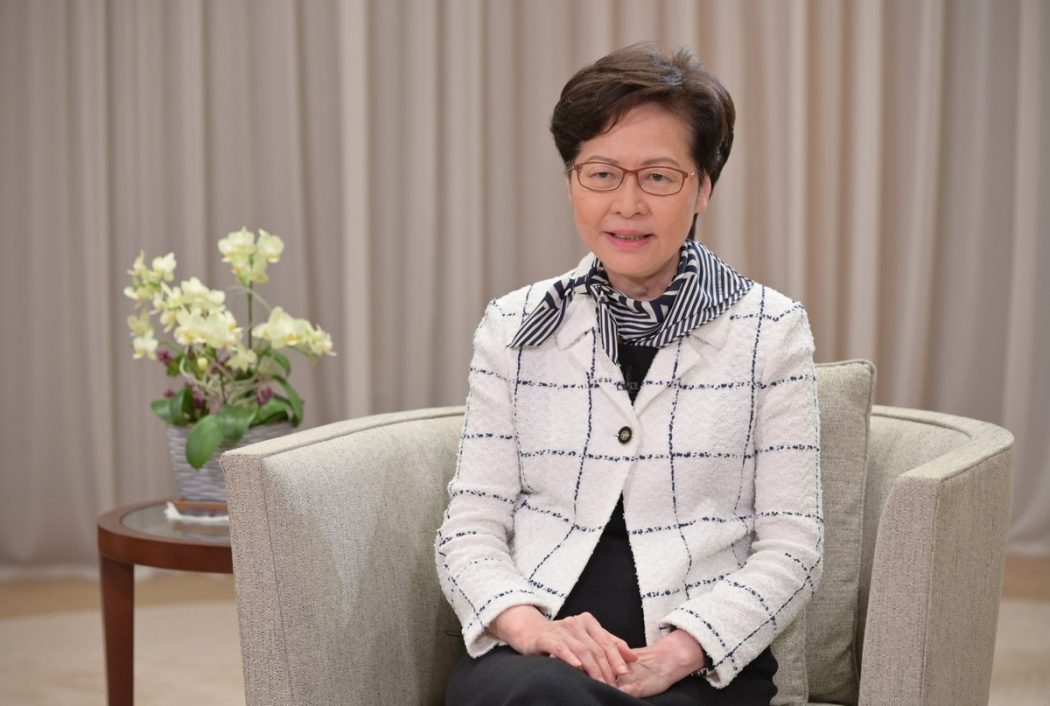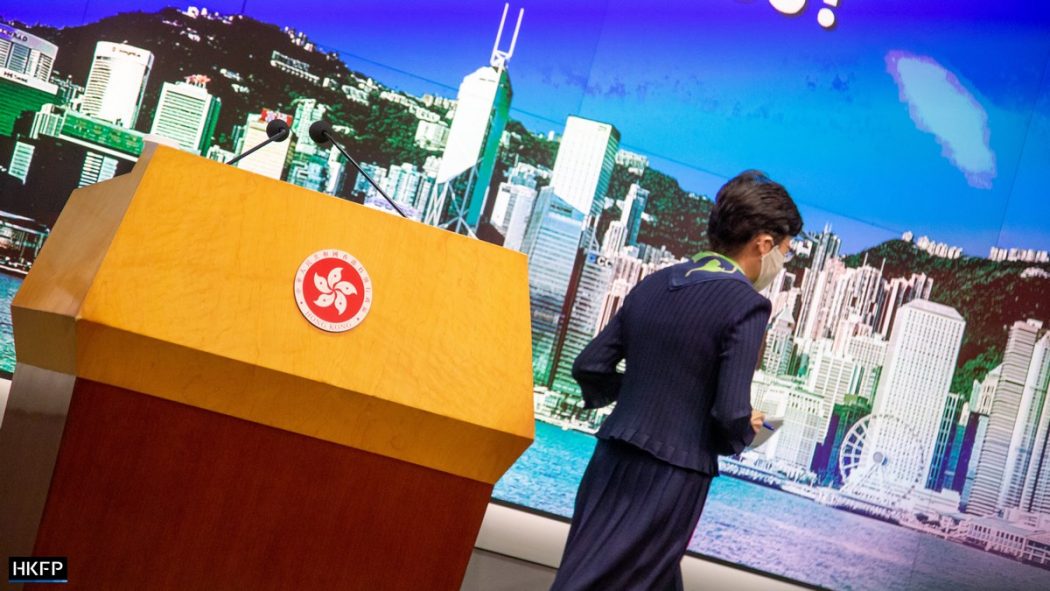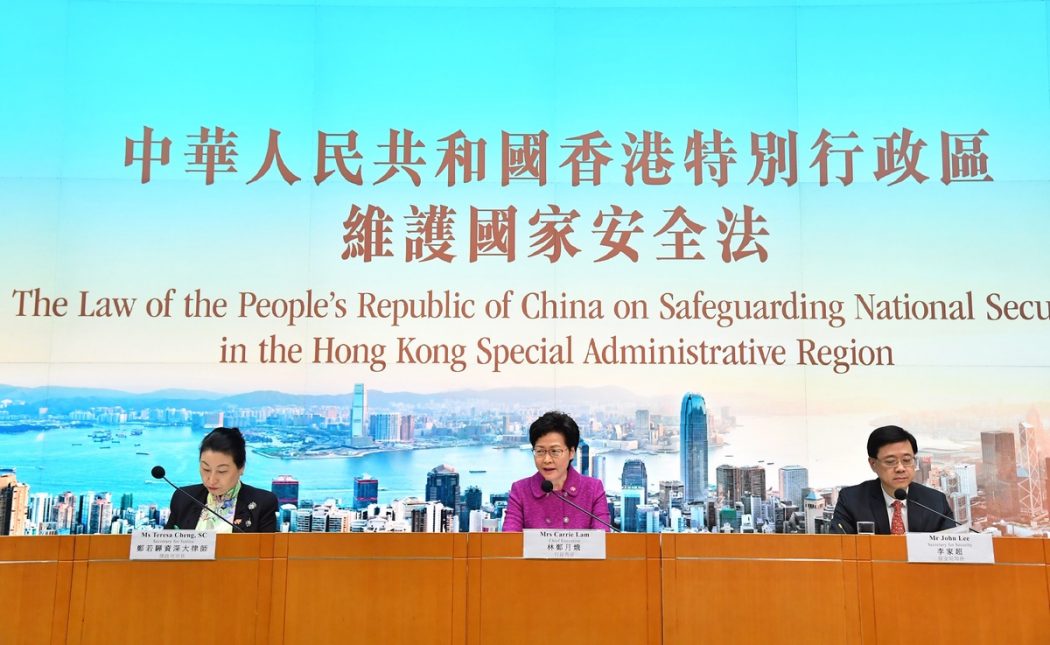Hong Kong’s Chief Executive Carrie Lam has shrugged off criticism, saying she has a “sense of duty” that prompted her to serve the public for four decades.
Speaking with numerous pro-establishment newspapers including Commercial Daily, Hong Kong Economic Times and Beijing-owned Wen Wei Po, the city’s leader discussed Hong Kong’s land supply issues and plans to foster closer links with Shenzhen.

In an interview with Commercial Daily published on Monday, Lam reflected on the 40 years she has spent in the civil service. She said there were ups and downs in her career, which she pushed through by “having a clear conscience.” She also revealed that she had turned down offers to leave the government in recent years.
“The heaviest blow is when you don’t know whether your work is right or not… everything that I do is for the good of Hong Kong, or even for the good of the country in recent years,” Lam told the pro-Beijing publication.
Record-low popularity
Lam’s popularity rating had plunged to a record low during Hong Kong’s citywide protests last year, originally triggered by her administration’s plans for an extradition bill that would have allowed the transfer of fugitives to other jurisdictions including mainland China. According to the Hong Kong Public Opinion Research Institute, her approval rating stands at 28.6 marks as of last Friday.
Amid angry calls from demonstrators demanding she to step down, a recording leaked in September last year appeared to show the chief executive saying she would quit if she had a choice. The top official later insisted that she had never tried to bow out.

Asked how she would cope with “malicious attacks” against her and other government officials on the internet, Lam said in the Commercial Daily interview that she was swamped with work and had little time to pay attention to what her critics said: “Why allocate and spend time to read, to listen and to be unhappy? Why not just don’t read and don’t listen… no matter how [they] berate me, it won’t affect my work,” she said, adding she has become “immune” to criticism.
In her New Year’s message to Hongkongers, Lam said the city had faced “unprecedented challenges” in 2019 owing to the anti-extradition bill protests, which left citizens in “sadness, anxiety, disappointment and even rage.”
The embattled leader vowed at the time that she would not shy away from her responsibility as the chief executive: “I will listen humbly to find a way out.”
Security law
Lam’s interview on Monday also touched on the Beijing-imposed national security law, which bans secession, subversion, collusion with foreign forces and terrorist acts – broadly defined to include disruption of public transport and other infrastructure.
The Hong Kong leader hailed the implementation of the legislation and said that work related to the newly-established national security units in the police force and the Department of Justice were all “in place.”
“Since the enactment of the national security law on June 30… the first instant result that everyone could see over the past three to four months is the restoration of social stability,” Lam said.

Local and overseas critics of the national security law – including foreign governments – have condemned the sweeping legislation as “draconian,” saying it has “destroyed” the city’s autonomy from China.
Lam said that, over the past year, some overseas governments and politicians had “suppressed” Hong Kong, therefore the city had to redeem its tarnished reputation among the international community. The city had to repair its relationship with people from mainland China as well, to welcome them to work, study or travel in the region, she said.
“To those overseas, we have to talk more about the principles of One Country, Two Systems, the protection of human rights and freedom and persistence to [uphold] the rule of law… but to mainland citizens, it is an emotional mending.”
Support HKFP | Policies & Ethics | Error/typo? | Contact Us | Newsletter | Transparency & Annual Report | Apps
Help safeguard press freedom & keep HKFP free for all readers by supporting our team

























